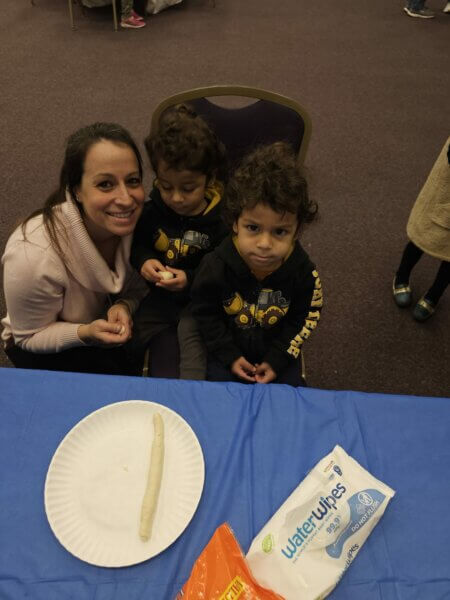By Rabbi Nussbaum
VOLUME 93 NUMBER 12
January 1, 2021
TEVES 17, 5780
PARSHAS VAYECHI
Candlelighting Time 4:28 PM
Yosef comes to his father for the last time seeking blessings for himself and his children. Yaakov promises him that he will include his two children Menashe and Ephraim as two of the twelve tribes, a significant upgrade of their status in the nation. Their inclusion is viewed as a ‘doubling’ of Yosef’s rights as though he is the first born of the family, which actually belonged to Reuven. Yaakov explained that he acquired the first born right from Eisav and was now gifting it to Yosef. Yaakov further clarified that he gained the entitlement through his sword and bow. Rashi explains this allusion to the fact that he secured this through his wisdom and prayer. It’s not clear from Rashi how Yaakov’s acquisition of the first born right from Eisav entitled Yosef to a similar right involving his children and furthermore, Eisav wanted to sell his first born right and seemingly it was not necessary to employ either wisdom or prayer to obtain it from Eisav.
In Parshas Vayishlach Rashi cites the Midrash that Eisav moved to Mount Seir to avoid Yaakov. He declared that Avrohom’s prophecy, guaranteeing the future nation to reside in the Land of Israel hinged upon their endurance of the brutal Egyptian exile, was not for him. He rejected the opportunity to have a portion in Israel asserting that the harshness of exile was too exorbitant a price to pay!
On the other hand, we find that the daughters of Tzelofchod approached Moshe with a request to have a portion in Israel. Their father had died without sons, therefore they wanted to have the rights to his inheritance and his portion. The Torah points out their lineage to note that their grandfather Yosef had tremendous love and admiration for the Land of Israel and therefore they were following his example. When Yosef died, he entrusted the nation with transporting his bones to Israel when the Egyptian exile would end. Clearly the rights in Israel that Eisav despised and therefore rejected definitely belonged to Yosef and his family, hence Yaakov bequeathed extra parts of Israel to Yosef’s family.
Perhaps we may assume that Yaakov’s wisdom was, seizing the opportunity to buy the first-born rights from Eisav when he came from the field exhausted and starving. Instead of placating and convincing him that he should try, at least, to maintain his position as first born, he realized that Eisav was not worthy of that status and therefore accepted his offer to sell his rights.
The Midrash comments that Yaakov obtained from Eisav the garments owned by Adam. This special attire was what Adam used when serving Hashem, the same singular clothing that the High Priest wore in the Beis Hamikdash! Eisav represented the Emori, as described here in the Torah, one of the main nations that were initially defeated allowing the nation to enter into Israel. They were the antithesis of our nation, steeped in the ways of idol worship and denial of Hashem.
When Yaakov left to Charan, he merited the dream of the ladder ascending to Heaven and Hashem guaranteed him that he would return safely to the Land of Israel. After that prophetic encounter, he davened to Hashem that His promise should be fulfilled and that he would indeed leave Lavan safely. His prayers were answered and although he eventually ended his life in Egypt, however, his grandchildren were the fulfillment of that promise when he granted them portions in the Land of Israel.
A BYTE FOR SHABBOS
All Jews are referred to as “Yehudim’ an allusion to Yehuda. His integrity and firmness in assertion of the truth are trademarks of our nation. S’FAS EMES
GOOD SHABBOS

